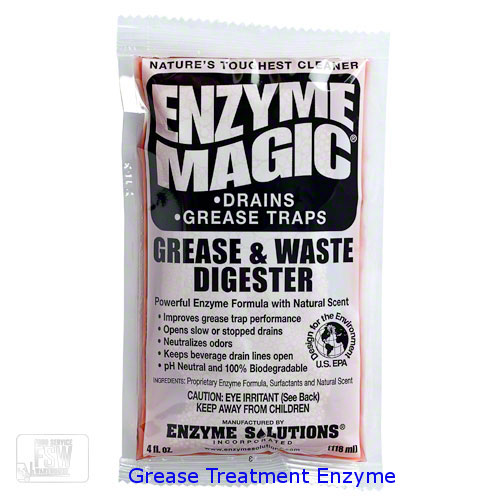





Total Water Management / Water Pond, Lake, River Restoration / Water Filtration / Enzyme wastewater treatmen, laundry, and Dishwash Application / Algae Biodiesel
What is the Enzyme?
Enzymes are the protein molecules which are involved in the metabolic reactions. The select microbial species we offer are highly efficient at producing hydrolytic enzymes to catalyze the hydrolysis of grease, fats, proteins and starches resulting in trouble free for sewer lines , lift stations ,grease traps in wastewater treatment application. Also, enzymes are commonly used in addition to viable bacterial and nutrient products to destroy hazardous organic waste chemistries in a variety of commercial and industrial applications. Due to enzyme’s site specific bacteria specification, Genotech’s enzyme are divided three major category application area in wastewater treatment, laundry, and dishwasher market.
, lift stations ,grease traps in wastewater treatment application. Also, enzymes are commonly used in addition to viable bacterial and nutrient products to destroy hazardous organic waste chemistries in a variety of commercial and industrial applications. Due to enzyme’s site specific bacteria specification, Genotech’s enzyme are divided three major category application area in wastewater treatment, laundry, and dishwasher market.
For Wastewater Treatment:
Amzyme can be site specifically formulated for the breakdown of high amounts of nitrates, nitrites, phosphorus, salts, specific pharmaceuticals and various other chemicals. Formulated enzymes can be effective to
- Improve water quality such as BOD, COD, and DO. Natural organic detritus and organic waste from wastewater treatment plants, failing septic systems, and agricultural and urban runoff, are a food source for water-borne bacteria. Bacteria consume these organic materials using dissolved oxygen, thus reducing the dissolved oxygen (DO) present for fish and other aquatic life.
- Biodegradation treatment for Pond and Tank’s pollutant. The main focus our pond / tank. aeration / bacterial system is to reduce the BOD and COD in the effluent discharged to natural waters, meeting state and federal discharge criteria.
For Laundry detergent treatment
In laundry detergents application, the enzymes act on materials that make up a variety of stains and soils so that these materials can be washed away more easily.
Each of the major types of detergent enzymes – amylases, proteases, lipases, mannanases, and cellulases – provides specific benefits:
• Better cleaning performance
• Shorter washing times
• Reduced energy consumption by lowering wash temperatures
• Reduced water consumption through higher cleaning efficiency
• Minimal environmental impact because enzymes are biodegradable
Since one enzyme molecule can act on many substrate molecules, a small amount of enzyme added to a laundry detergent can provide a big cleaning benefit to the consumer. Enzymes are continuously growing in importance for detergent formulators, working in an efficient, environmentally sound, and energy-saving way their obvious advantages make them universally acceptable for meeting a wide range of important consumer demands.
Dishwashing enzyme Application:
An enzymatic dishwashing liquid helps soils come off more easily and requires less scrubbing by the user. Enzymes in the detergent have been proven to dissolve the soils faster and ease cleaning.
Enzymes help to reduce the soaking time and mechanical action by 50 percent even at low dosages such as approximately 0.2 percent. Our enzymes are efficient at temperatures ranging from 20°C to 60°C. Increase the efficiency of the wash process by using enzymes.
Dishwasher tablets and powders contain a surprising mix of chemicals, far more than just the detergent you might expect.
Enzymes work best at lower and moderate temperatures. They are denatured and will no longer work if they have been exposed to temperatures much above this for any length of time. On the other hand, grease removal will work best at high temperatures when fats melt to oils making them easier to remove. And, of course, all chemical reactions go faster at higher temperatures - twice as fast for every 10 °C rise is a useful rule of thumb.